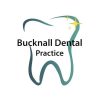Dentistry is 1 of the few NHS services where you have to pay a contribution towards the cost of your care. The information on this page explains why you may have to pay for your NHS dental treatment.
NHS Prices
£25.80
Clinical examination, assessment and report
Orthodontic assessment and report
Diagnoses and treatment planning
X-rays
Moulds of your teeth
Taking photographs
Advice on preventing future problems
Applying sealants or fluoride preparations
Scale and polish
Marginal correction of fillings
Taking cell and tissue samples
Adjusting dentures or orthodontic appliances
Treating sensitive cementum
Band 1 course of treatment
This covers an examination, diagnosis (including X-rays), advice on how to prevent future problems, a scale and polish if clinically needed, and preventative care such as the application of fluoride varnish or fissure sealant if appropriate.
£70.70
Non-surgical treatment of periodontitis
Surgical treatment of periodontitis
Gingival grafts
Fillings
Sealant restorations
Root canal treatment (endodontics)
Pulpotomy
Apicectomy
Transplanting teeth
Removing teeth
Oral surgery – such as removing a cyst
Soft tissue surgery to the mouth or lips
Frenectomy, frenoplasty or frenotomy
Relining and rebasing dentures
Adding to your dentures
Splinting loose teeth
Band 2 course of treatment
This covers everything listed in Band 1 above, plus any further treatment such as fillings, root canal work or removal of teeth. It doesn’t include more complex items covered by Band 3.
£306.80
Bridges
Crowns
Dentures
Inlays/onlays
Veneers
All treatments must be for a clinical need and can only be determined by your dentist. Cosmetic work is NOT available on the NHS
Band 3 course of treatment
This covers everything listed in Bands 1 and 2 above, plus crowns, dentures, bridges and other laboratory work.
£25.80
Assessment
x-rays
dressing of teeth
pulpectomy or pulpotomy
splinting avulsed teeth etc
repair and refix bridges etc
removing teeth no more then tooth
aftercare including treatment for infection
adjusting dentures/ appliances
urgent treatment for acute conditions such as ulcer/ herpes
treatment of sensitive teeth
draining of an abscess
Emergency Treatment
This covers treatment or advice to aid the treatment of a dental emergency only and is per session.
NHS Eligibility
Free NHS Dental Treatment or Help With Health Costs
You don’t have to pay for NHS dental treatment if you’re:
- Under 18, or under 19 and in full-time education
- Pregnant or have had a baby in the previous 12 months
- Being treated in an NHS hospital and your treatment is carried out by the hospital dentist (but you may have to pay for any dentures or bridges)
- Receiving low-income benefits, or you’re under 20 and a dependant of someone receiving low-income benefits
Low-income benefits
You’re entitled to free NHS dental treatment if you or your spouse (including civil partner) receive:
- Income Support
- Income-related Employment and Support Allowance (Not Contribution Based)
- Income-based Jobseeker’s Allowance (Not Contribution Based)
- Pension Credit (Not savings Credit)
- Universal Credit (in certain circumstances – No earnings or Earnings within allowed limit)
Certificates to help with health costs
You can receive free NHS dental treatment if you’re entitled to or named on:
- A valid NHS tax credit exemption certificate
- A valid HC2 certificate – available for people on a low income
If you’re named on an NHS certificate for partial help with health costs (HC3) may also get help.
You’ll be asked to show your dentist written proof that you don’t have to pay for all or part of your NHS treatment. You’ll also be asked to sign a form to confirm that you don’t have to pay.
If you’re seen under the NHS, you’ll be required to complete a Practice Record Form. The Practice Record Form is an NHS requirement and a declaration to the NHS for which you are responsible for. This informs the NHS whether you’re in receipt of a dental exemption which excludes you from paying NHS charges or whether you should pay for your dental charges. Failure to complete the Practice Record Form may result in an NHS appointment being declined. If you’re found to have wrongly claimed free or reduced costs for NHS dental treatment, you’ll be asked to pay the full cost of the treatment and may receive a penalty charge from the NHS.
Routine checks are carried out on claims including claims where evidence of entitlement is shown to the dental practice.
If treatment is required, you will also be asked to sign a FP17DC form or a printed treatment plan which details the NHS and/or Private treatment suggested, along with the prices associated with the treatment(s).
When registering you’ll be required to complete a Medical History Form. You’ll then be asked to check and sign your medical history on an annual basis. We ask that you keep us updated of any health changes as well as contact details.



